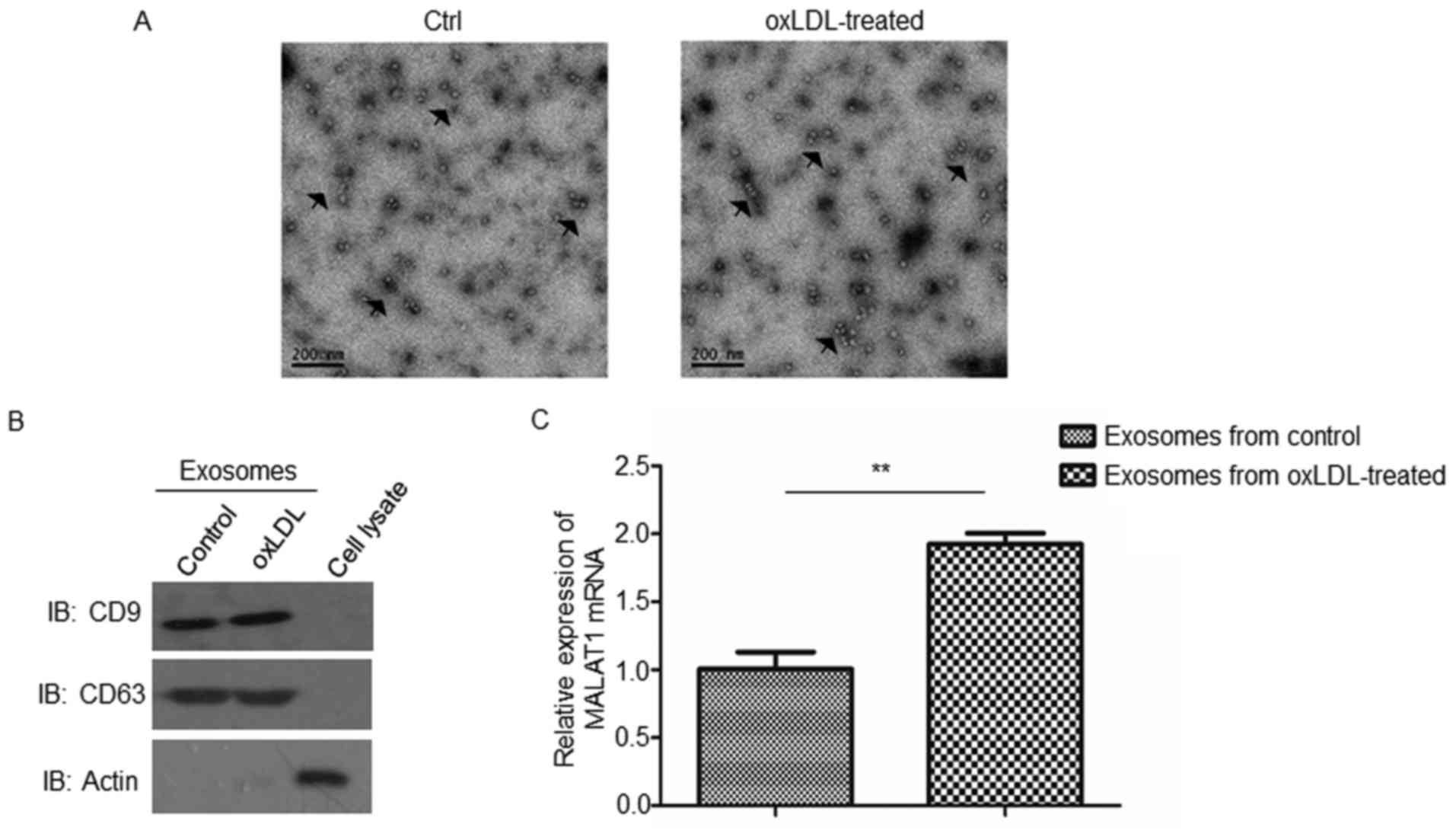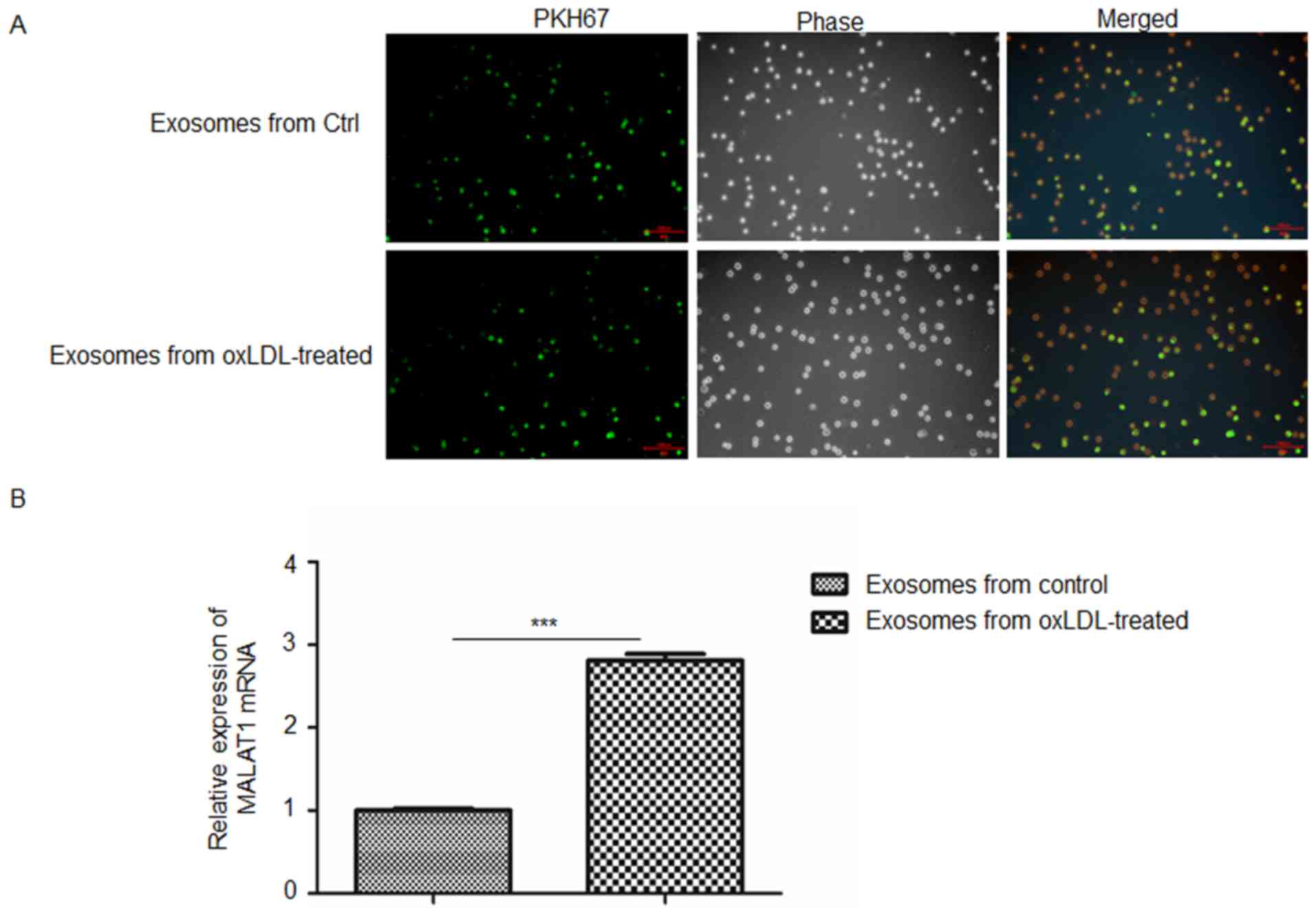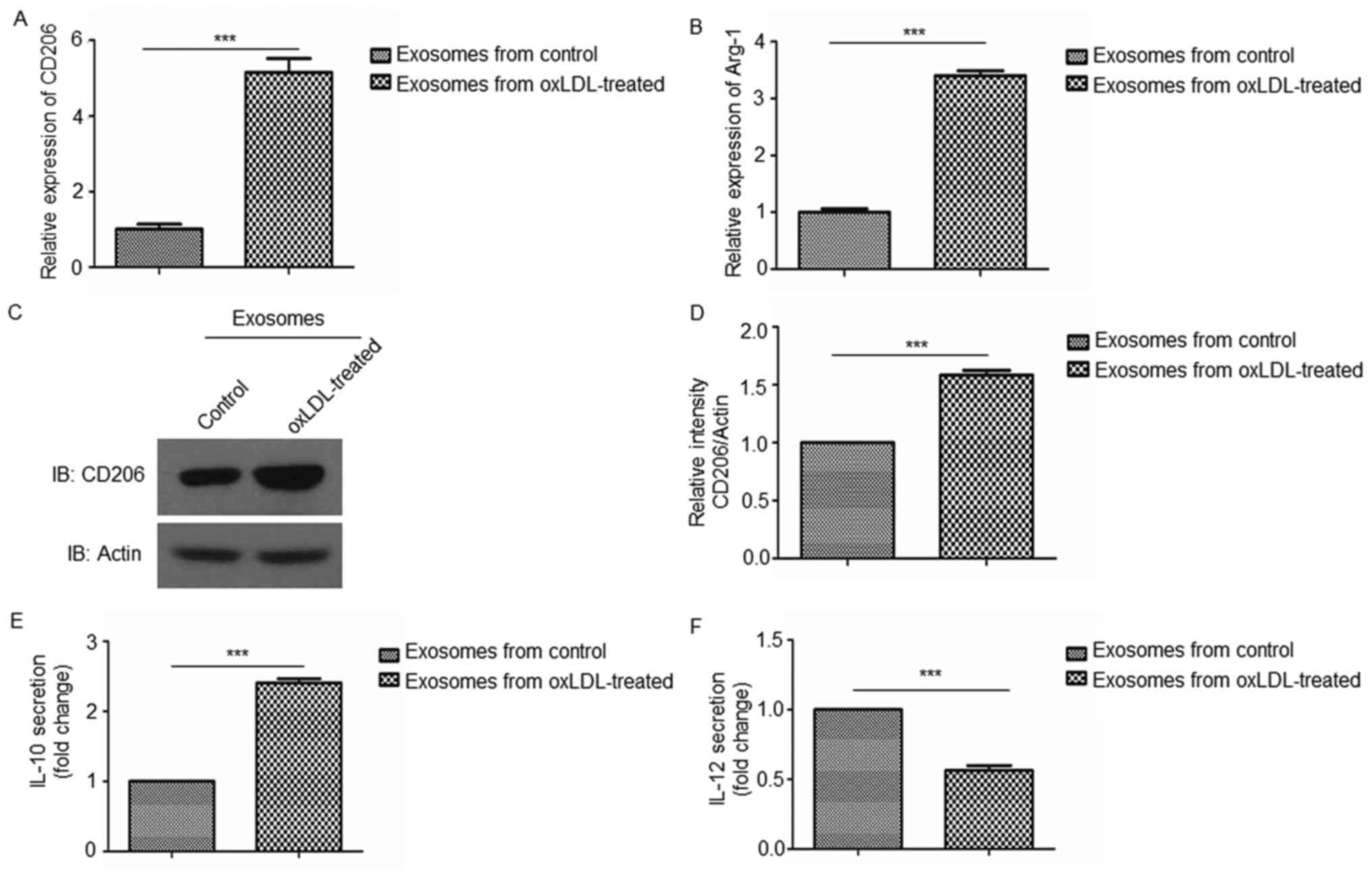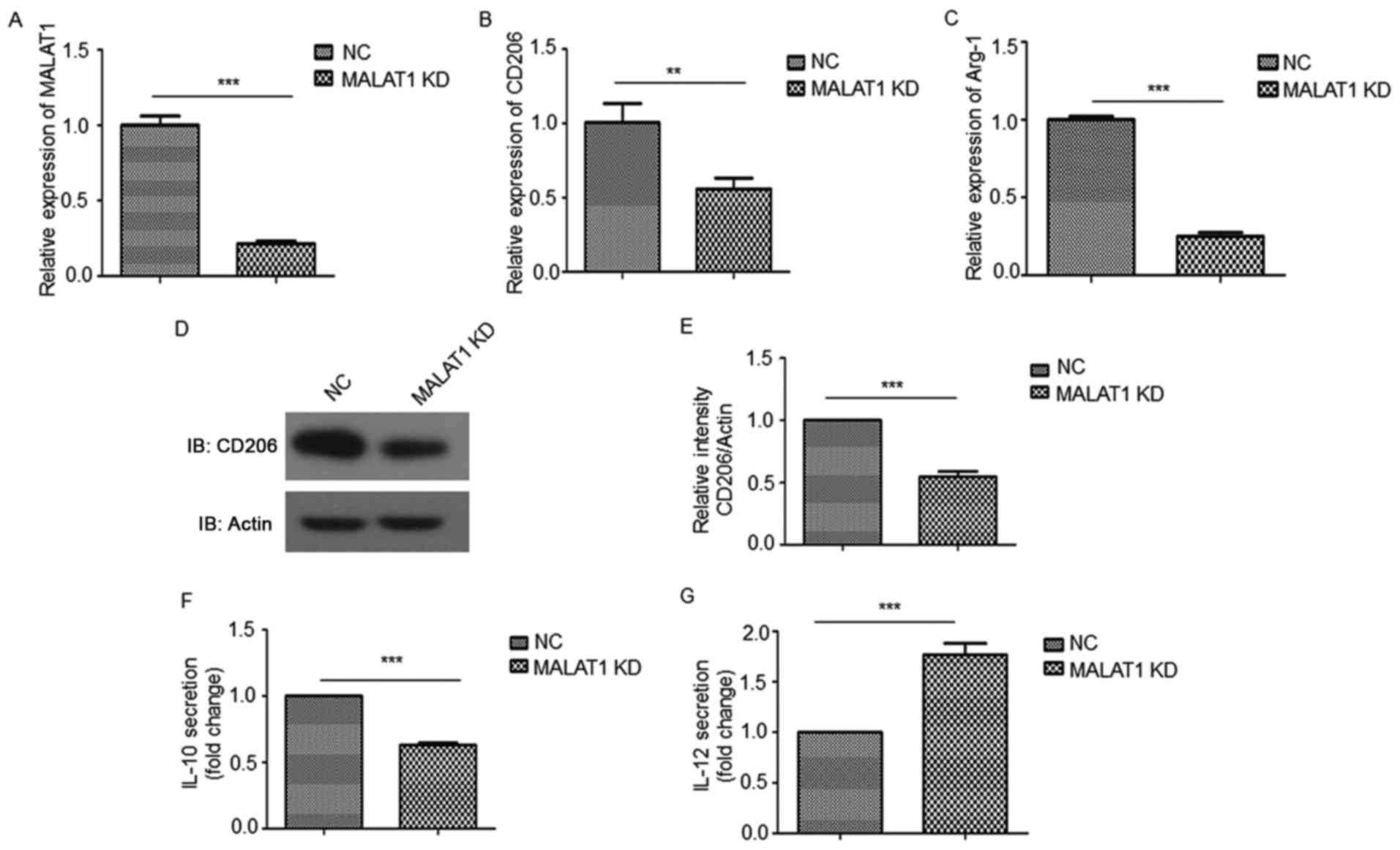|
1
|
Gkaliagkousi E, Gavriilaki E,
Triantafyllou A and Douma S: Clinical significance of endothelial
dysfunction in essential hypertension. Curr Hypertens Rep.
17:852015. View Article : Google Scholar : PubMed/NCBI
|
|
2
|
Prieto D, Contreras C and Sánchez A:
Endothelial dysfunction, obesity and insulin resistance. Curr Vasc
Pharmacol. 12:412–426. 2014. View Article : Google Scholar : PubMed/NCBI
|
|
3
|
de Jager SCA, Meeuwsen JAL, van Pijpen FM,
Zoet GA, Barendrecht AD, Franx A, Pasterkamp G, van Rijn BB,
Goumans MJ and den Ruijter HM: Preeclampsia and coronary plaque
erosion: Manifestations of endothelial dysfunction resulting in
cardiovascular events in women. Eur J Pharmacol. 816:129–137. 2017.
View Article : Google Scholar : PubMed/NCBI
|
|
4
|
Yang X, Li Y, Li Y, Ren X, Zhang X, Hu D,
Gao Y, Xing Y and Shang H: Oxidative stress-mediated
atherosclerosis: Mechanisms and therapies. Front Physiol.
8:6002017. View Article : Google Scholar : PubMed/NCBI
|
|
5
|
Chen M, Ren L, Meng Y, Shi L, Chen L, Yu
B, Wu Q and Qi G: The protease inhibitor E64d improves
ox-LDL-induced endothelial dysfunction in human aortic endothelial
cells. Can J Physiol Pharmacol. 96:120–127. 2018. View Article : Google Scholar : PubMed/NCBI
|
|
6
|
Li J, Liang X, Wang Y, Xu Z and Li G:
Investigation of highly expressed PCSK9 in atherosclerotic plaques
and ox-LDL-induced endothelial cell apoptosis. Mol Med Rep.
16:1817–1825. 2017. View Article : Google Scholar : PubMed/NCBI
|
|
7
|
Li Z, Huang H, Huang L, Du L, Sun Y and
Duan Y: Prevention of oxidized low density lipoprotein-induced
endothelial cell injury by DA-PLGA-PEG-cRGD nanoparticles combined
with ultrasound. Int J Mol Sci. 18:pii: E815. 2017.
|
|
8
|
Amberger A, Maczek C, Jürgens G, Michaelis
D, Schett G, Trieb K, Eberl T, Jindal S, Xu Q and Wick G:
Co-expression of ICAM-1, VCAM-1, ELAM-1 and Hsp60 in human arterial
and venous endothelial cells in response to cytokines and oxidized
low-density lipoproteins. Cell Stress Chaperones. 2:94–103. 1997.
View Article : Google Scholar : PubMed/NCBI
|
|
9
|
Weber C, Erl W, Weber KS and Weber PC:
Effects of oxidized low density lipoprotein, lipid mediators and
statins on vascular cell interactions. Clin Chem Lab Med.
37:243–251. 1999. View Article : Google Scholar : PubMed/NCBI
|
|
10
|
Di Pietro N, Formoso G and Pandolfi A:
Physiology and pathophysiology of oxLDL uptake by vascular wall
cells in atherosclerosis. Vascul Pharmacol. 84:1–7. 2016.
View Article : Google Scholar : PubMed/NCBI
|
|
11
|
Westhorpe CL, Dufour EM, Maisa A,
Jaworowski A, Crowe SM and Muller WA: Endothelial cell activation
promotes foam cell formation by monocytes following
transendothelial migration in an in vitro model. Exp Mol Pathol.
93:220–226. 2012. View Article : Google Scholar : PubMed/NCBI
|
|
12
|
Pirillo A, Norata GD and Catapano AL:
LOX-1, OxLDL, and atherosclerosis. Mediators Inflamm.
2013:1527862013. View Article : Google Scholar : PubMed/NCBI
|
|
13
|
Wang N, Liang H and Zen K: Molecular
mechanisms that influence the macrophage m1-m2 polarization
balance. Front Immunol. 5:6142014. View Article : Google Scholar : PubMed/NCBI
|
|
14
|
Bories GFP and Leitinger N: Macrophage
metabolism in atherosclerosis. FEBS Lett. 591:3042–3060. 2017.
View Article : Google Scholar : PubMed/NCBI
|
|
15
|
Liberale L, Dallegri F, Montecucco F and
Carbone F: Pathophysiological relevance of macrophage subsets in
atherogenesis. Thromb Haemost. 117:7–18. 2017. View Article : Google Scholar : PubMed/NCBI
|
|
16
|
Chistiakov DA, Bobryshev YV, Nikiforov NG,
Elizova NV, Sobenin IA and Orekhov AN: Macrophage phenotypic
plasticity in atherosclerosis: The associated features and the
peculiarities of the expression of inflammatory genes. Int J
Cardiol. 184:436–445. 2015. View Article : Google Scholar : PubMed/NCBI
|
|
17
|
Colin S, Chinetti-Gbaguidi G and Staels B:
Macrophage phenotypes in atherosclerosis. Immunol Rev. 262:153–166.
2014. View Article : Google Scholar : PubMed/NCBI
|
|
18
|
Fadini GP, Simoni F, Cappellari R, Vitturi
N, Galasso S, de Kreutzenberg Vigili S, Previato L and Avogaro A:
Pro-inflammatory monocyte-macrophage polarization imbalance in
human hypercholesterolemia and atherosclerosis. Atherosclerosis.
237:805–808. 2014. View Article : Google Scholar : PubMed/NCBI
|
|
19
|
Xu R, Li C, Wu Y, Shen L, Ma J, Qian J and
Ge J: Role of KCa3.1 channels in macrophage polarization and its
relevance in atherosclerotic plaque instability. Arterioscler
Thromb Vasc Biol. 37:226–236. 2017. View Article : Google Scholar : PubMed/NCBI
|
|
20
|
Lin Y, Chen Z and Kato S:
Receptor-selective IL-4 mutein modulates inflammatory vascular cell
phenotypes and attenuates atherogenesis in apolipoprotein
E-knockout mice. Exp Mol Pathol. 99:116–127. 2015. View Article : Google Scholar : PubMed/NCBI
|
|
21
|
Martínez MC and Andriantsitohaina R:
Extracellular vesicles in metabolic syndrome. Circ Res.
120:1674–1686. 2017. View Article : Google Scholar : PubMed/NCBI
|
|
22
|
Todorova D, Simoncini S, Lacroix R,
Sabatier F and Dignat-George F: Extracellular vesicles in
angiogenesis. Circ Res. 120:1658–1673. 2017. View Article : Google Scholar : PubMed/NCBI
|
|
23
|
Nomura S: Extracellular vesicles and blood
diseases. Int J Hematol. 105:392–405. 2017. View Article : Google Scholar : PubMed/NCBI
|
|
24
|
Goetzl EJ, Schwartz JB, Mustapic M, Lobach
IV, Daneman R, Abner EL and Jicha GA: Altered cargo proteins of
human plasma endothelial cell-derived exosomes in atherosclerotic
cerebrovascular disease. FASEB J. 31:3689–3694. 2017. View Article : Google Scholar : PubMed/NCBI
|
|
25
|
Lu X: The role of exosomes and
exosome-derived microRNAs in atherosclerosis. Curr Pharm Des. Apr
13–2017.(Epub ahead of print).
|
|
26
|
Niu C, Wang X, Zhao M, Cai T, Liu P, Li J,
Willard B, Zu L, Zhou E, Li Y, et al: Macrophage foam cell-derived
extracellular vesicles promote vascular smooth muscle cell
migration and adhesion. J Am Heart Assoc. 5:pii: e00409. 2016.
View Article : Google Scholar
|
|
27
|
Cai J, Wu G, Jose PA and Zeng C:
Functional transferred DNA within extracellular vesicles. Exp Cell
Res. 349:179–183. 2016. View Article : Google Scholar : PubMed/NCBI
|
|
28
|
Liu Y, Zheng L, Wang Q and Hu YW: Emerging
roles and mechanisms of long noncoding RNAs in atherosclerosis. Int
J Cardiol. 228:570–582. 2017. View Article : Google Scholar : PubMed/NCBI
|
|
29
|
Li H, Zhu H and Ge J: Long noncoding RNA:
Recent updates in atherosclerosis. Int J Biol Sci. 12:898–910.
2016. View Article : Google Scholar : PubMed/NCBI
|
|
30
|
Zhou T, Ding JW, Wang XA and Zheng XX:
Long noncoding RNAs and atherosclerosis. Atherosclerosis.
248:51–61. 2016. View Article : Google Scholar : PubMed/NCBI
|
|
31
|
Zhang X, Hamblin MH and Yin KJ: The long
noncoding RNA malat1: Its physiological and pathophysiological
functions. RNA Biol. 14:1705–1714. 2017. View Article : Google Scholar : PubMed/NCBI
|
|
32
|
Uchida S and Dimmeler S: Long noncoding
RNAs in cardiovascular diseases. Circ Res. 116:737–750. 2015.
View Article : Google Scholar : PubMed/NCBI
|
|
33
|
Yoshimoto R, Mayeda A, Yoshida M and
Nakagawa S: MALAT1 long non-coding RNA in cancer. Biochim Biophys
Acta. 1859:192–199. 2016. View Article : Google Scholar : PubMed/NCBI
|
|
34
|
Livak KJ and Schmittgen TD: Analysis of
relative gene expression data using real-time quantitative PCR and
the 2(-Delta Delta C(T)) method. Methods. 25:402–408. 2001.
View Article : Google Scholar : PubMed/NCBI
|
|
35
|
Chen L, Yang W, Guo Y, Chen W, Zheng P,
Zeng J and Tong W: Exosomal lncRNA GAS5 regulates the apoptosis of
macrophages and vascular endothelial cells in atherosclerosis. PLoS
One. 12:e01854062017. View Article : Google Scholar : PubMed/NCBI
|
|
36
|
Ebrahimi KB, Fijalkowski N, Cano M and
Handa JT: Oxidized low-density-lipoprotein-induced injury in
retinal pigment epithelium alters expression of the membrane
complement regulatory factors CD46 and CD59 through exosomal and
apoptotic bleb release. Adv Exp Med Biol. 801:259–265. 2014.
View Article : Google Scholar : PubMed/NCBI
|
|
37
|
Baer C, Squadrito ML, Iruela-Arispe ML and
De Palma M: Reciprocal interactions between endothelial cells and
macrophages in angiogenic vascular niches. Exp Cell Res.
319:1626–1634. 2013. View Article : Google Scholar : PubMed/NCBI
|
|
38
|
Zhao H, Shang Q, Pan Z, Bai Y, Li Z, Zhang
H, Zhang Q, Guo C, Zhang L and Wang Q: Exosomes from
adipose-derived stem cells attenuate adipose inflammation and
obesity through polarizing M2 macrophages and beiging in white
adipose tissues. Diabetes. 67:235–247. 2018. View Article : Google Scholar : PubMed/NCBI
|
|
39
|
Chen X, Ying X and Wang X, Wu X, Zhu Q and
Wang X: Exosomes derived from hypoxic epithelial ovarian cancer
deliver microRNA-940 to induce macrophage M2 polarization. Oncol
Rep. 38:522–528. 2017. View Article : Google Scholar : PubMed/NCBI
|
|
40
|
Song Y, Dou H, Li X, Zhao X, Li Y, Liu D,
Ji J, Liu F, Ding L, Ni Y and Hou Y: Exosomal miR-146a contributes
to the enhanced therapeutic efficacy of interleukin-1β-primed
mesenchymal stem cells against sepsis. Stem Cells. 35:1208–1221.
2017. View Article : Google Scholar : PubMed/NCBI
|
|
41
|
Gezer U, Özgür E, Cetinkaya M, Isin M and
Dalay N: Long non-coding RNAs with low expression levels in cells
are enriched in secreted exosomes. Cell Biol Int. 38:1076–1079.
2014.PubMed/NCBI
|
|
42
|
Zhang R, Xia Y, Wang Z, Zheng J, Chen Y,
Li X, Wang Y and Ming H: Serum long non coding RNA MALAT-1
protected by exosomes is up-regulated and promotes cell
proliferation and migration in non-small cell lung cancer. Biochem
Biophys Res Commun. 490:406–414. 2017. View Article : Google Scholar : PubMed/NCBI
|
|
43
|
El Bassit G, Patel RS, Carter G, Shibu V,
Patel AA, Song S, Murr M, Cooper DR, Bickford PC and Patel NA:
MALAT1 in human adipose stem cells modulates survival and
alternative splicing of PKCδII in HT22 cells. Endocrinology.
158:183–195. 2017.PubMed/NCBI
|
|
44
|
Huangfu N, Xu Z, Zheng W, Wang Y, Cheng J
and Chen X: LncRNA MALAT1 regulates oxLDL-induced CD36 expression
via activating β-catenin. Biochem Biophys Res Commun.
495:2111–2117. 2018. View Article : Google Scholar : PubMed/NCBI
|
|
45
|
Tang Y, Jin X, Xiang Y, Chen Y, Shen CX,
Zhang YC and Li YG: The lncRNA MALAT1 protects the endothelium
against ox-LDL-induced dysfunction via upregulating the expression
of the miR-22-3p target genes CXCR2 and AKT. FEBS Lett.
589:3189–3196. 2015. View Article : Google Scholar : PubMed/NCBI
|


















